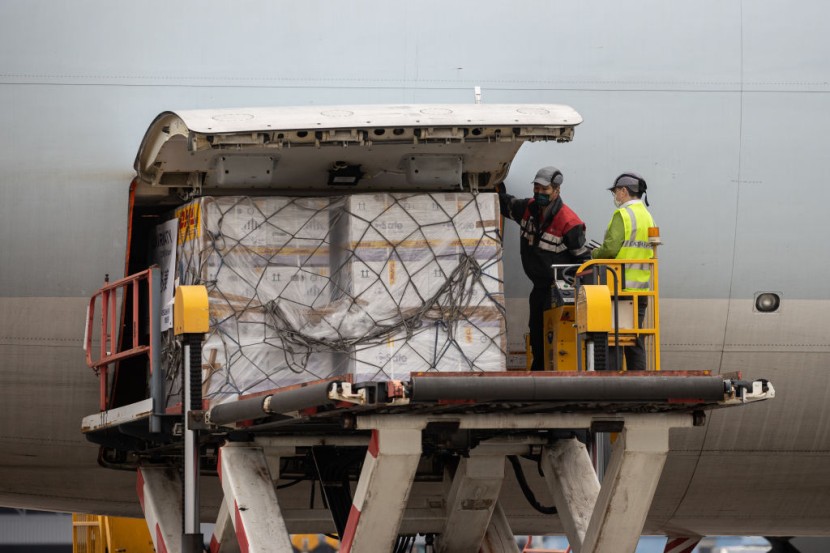
A German government spokesperson announced on Wednesday that Berlin has dispatched its first batch of BioNTech COVID-19 vaccinations to China for German ex-pats.
This is the first time a coronavirus vaccination has been sent to mainland China from another country. Though, no additional information was provided on the delivery's expected arrival time or total volume.
In an agreement struck during German Chancellor Olaf Scholz's visit to Beijing last month, China agreed to enable German nationals in China to obtain the vaccine shots. Reuters reported that Scholz also pressed Beijing to allow the shot to be freely accessible to Chinese people.
Around 20,000 German citizens are presently in China.
So far, Beijing health authorities are employing only vaccines that are developed locally, that use older, non-Western methods (such as mRNA).
Beijing has recently relaxed its "zero-COVID" policy of lockdowns, leading to an increase in cases that have overwhelmed the country's already unsteady healthcare infrastructure.
After years of disputes over trade and the environment, Beijing is making a huge gesture to Berlin by giving German expatriates access to a Western vaccination. This shows Beijing's desire to deepen its relationship with Europe's largest economy.
COVID-19 Vaccine Hesitancy in China Still a Problem
The news comes as health authorities report that COVID-19 vaccine hesitancy remains high in Mainland China, creating a significant problem for Beijing as it seeks to convince more people to be vaccinated in the wake of an increase in illnesses after the relaxation of strict anti-COVID-19 efforts.
According to government statistics, China's vaccination coverage is officially above 90%, but the percentage of individuals who have had booster shots falls to 57.9% and 42.3% for those who are 80 years of age or older. The data raised concerns that the country might see over 1.5 million fatalities next year after relaxing restrictions like lockdowns and mass testing that prevented the majority of virus transmission, per Japan Times.
A journal affiliated with the Chinese Center for Disease Control and Prevention recognized in September that older persons' vaccination rates were inadequate.
Read Also: Kim Jong-un's Sister Sends Scary Warning to Skeptics Amid Criticisms on North Korea's Missiles
According to Stephanie Jean-Tsang, an assistant professor at Hong Kong Baptist University who focuses on health communications, it's a really "special case" in China since people felt relatively protected for a long period.
She added that it took time for the people of Hong Kong, especially the older population, to understand the benefits of vaccinations.
Despite some evidence that the population could resist a forced vaccination policy, authorities have not implemented one. The Chinese government said last week that they will begin providing a second booster, or fourth injection, to those at high risk and those over the age of 60.
Possible Root of The Problem
Mary Brazelton of the University of Cambridge, a specialist in the history of science and medicine in China, remarked that after the 1949 Communist takeover, the Chinese government successfully vaccinated against smallpox, TB, diphtheria, and other illnesses.
However, according to an NPR report, China has had a series of product quality crises in recent decades due to low regulation and corruption, including infant formula laced with industrial chemicals and contaminated vaccinations.
Brazelton noted: "To me, that kind of help explain the degrees of hesitancy."
China specialists have also noted a lack of a strong message about the importance of immunization, which led to COVID-19 vaccine hesitancy.
China has not imported any vaccine made outside of China, even though most people think they work better than China's locally made shots.
Statistics on Chinese vaccinations have also been inconsistent. According to a March study out of Hong Kong, boosters manufactured by the Chinese company Sinovac may help seniors avoid developing life-threatening illnesses.
However, experts from Singapore have recently discovered that three or four doses of mRNA vaccinations provide superior protection for adults over the age of 60 than China's inactivated viral vaccines for COVID-19.








